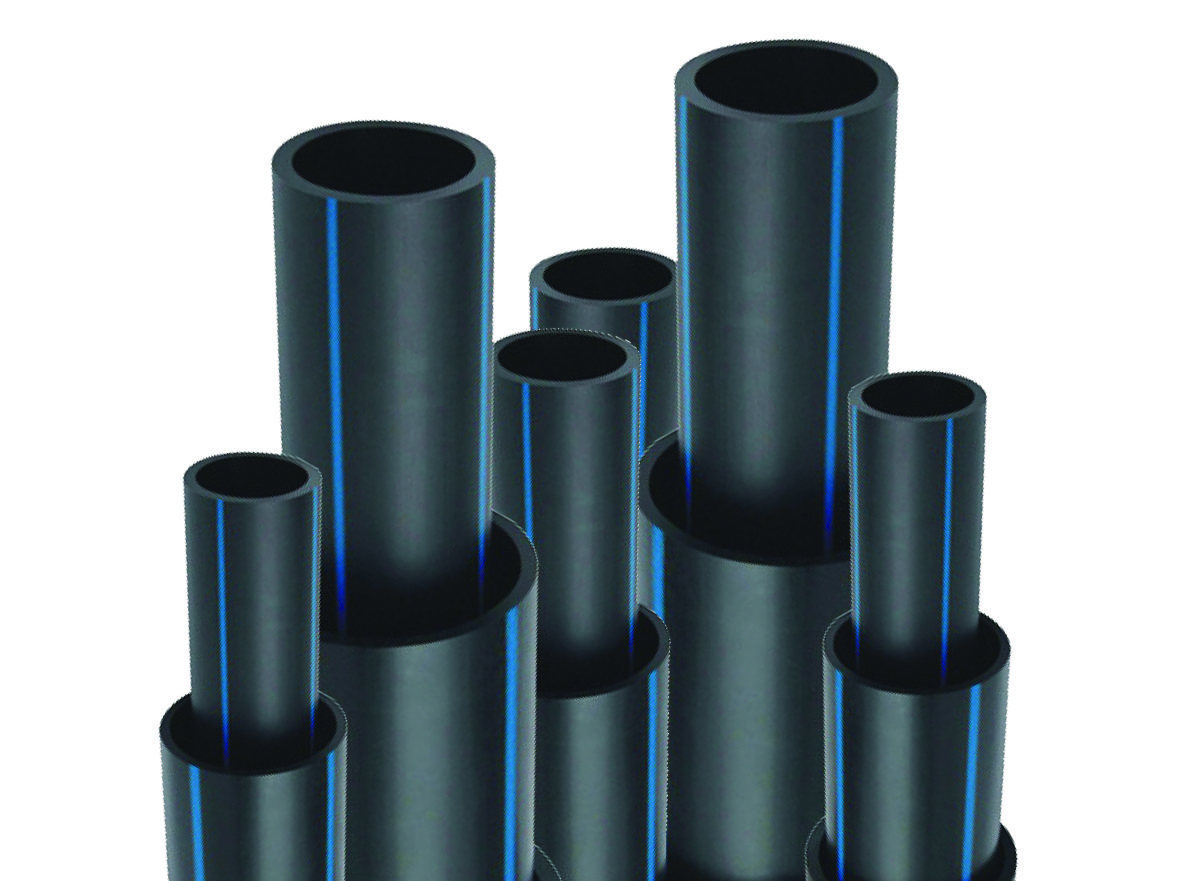Comprehending the Secret Conveniences of HDPE Pipeline for Water and Wastewater Monitoring
Using HDPE pipe in water and wastewater administration presents countless benefits that warrant consideration. Its phenomenal toughness and long life expectancy make it a favored choice for several projects. In addition, the material's resistance to deterioration and chemical damages boosts its reliability in different settings. The benefits expand beyond just longevity and resistance. Midland TX HDPE Pipe Fittings in Stock. Exploring its cost-effectiveness and ecological effect discloses even much more engaging reasons for its prevalent fostering in modern facilities
Phenomenal Durability and Longevity

HDPE pipeline stands apart for its outstanding durability and longevity, making it a recommended selection in water management systems. Created from high-density polyethylene, these pipes can stand up to substantial stress and stress, making certain trusted performance over time. Their durable nature allows them to endure extreme ecological problems, including temperature fluctuations and dirt motions, which can cause other products to fall short.
The lifespan of HDPE pipelines commonly exceeds half a century, offering a cost-effective service for towns and markets alike. Additionally, the material's light-weight residential or commercial properties simplify installation, decreasing labor costs and durations. This durability reduces the requirement for frequent fixings or replacements, further improving its economic appeal.
In water monitoring applications, the dependability of HDPE pipelines implies fewer disturbances and improved service continuity, making them integral to lasting infrastructure development. The combination of resilience and longevity strengthens HDPE's function as a keystone in efficient water monitoring services.

Resistance to Rust and Chemical Damage
While many products catch deterioration and chemical damages gradually, HDPE pipes show amazing resistance, making them perfect for numerous water administration applications. This resilience comes from the molecular structure of high-density polyethylene, which is naturally non-reactive and does not corrode like steels or deteriorate from direct exposure to extreme chemicals. As a result, HDPE is highly reliable in atmospheres with hostile compounds, such as wastewater systems that might include acids, bases, and natural solvents.
Furthermore, HDPE pipelines can hold up against ecological factors such as dirt level of acidity and saline problems, even more boosting their suitability for varied applications (Midland TX HDPE Pipe Fittings in Stock). Their capability to maintain structural stability over time decreases the threat of leaks and failures, which is vital in making sure the safety and security and reliability of water distribution and wastewater monitoring systems. The resistance to deterioration and chemical damages significantly adds to the total performance and long life of HDPE piping solutions.
Cost-Effectiveness and Economic Advantages
When considering the monetary ramifications of water management systems, the cost-effectiveness of HDPE pipes becomes apparent. These pipes provide reduced installation and maintenance prices contrasted to typical materials like metal or concrete. Their lightweight nature streamlines transportation and setup, resulting in reduced labor expenses. In addition, HDPE pipelines display a long life expectancy, usually surpassing 50 years, which translates to fewer substitutes and long-lasting cost savings.
The resistance of HDPE to corrosion and chemical damages lessens the requirement for costly repairs and substitutes. The pipes also sustain effective water circulation, minimizing energy prices linked with pumping systems. By minimizing leakages and water loss, HDPE pipes add to substantial economic advantages for communities and sectors alike. On the whole, the first investment in HDPE piping can yield significant monetary returns over the lifespan of the water monitoring system, making it a prudent choice for sustainable facilities advancement.
Environmental Sustainability and Minimized Effect

Convenience and Flexibility in Setup
Due to the fact that of their distinct residential properties, HDPE pipes use impressive adaptability and adaptability in installation, making them appropriate for a variety of applications. Their lightweight nature enables easier handling and transportation, minimizing labor prices and installation time. HDPE pipes can be bent and formed to fit numerous surfaces and project requirements, Source which is especially valuable in challenging environments.
Furthermore, their resistance to deterioration and chemical damages enables installation in diverse settings without the requirement for specialized protective layers. The ability to fuse joints creates a continuous, leak-free system, improving the general honesty and reliability of the installment. HDPE's versatility additionally accommodates ground movement, minimizing the risk of damages in areas vulnerable to moving dirt. In general, these qualities make HDPE pipes not just flexible but also a favored option for water and wastewater monitoring systems.
Often Asked Questions
Exactly How Does HDPE Pipe Compare to PVC in Water Administration Applications?
HDPE pipe provides exceptional versatility, resistance to corrosion, and toughness contrasted to PVC. Its lighter weight assists in much easier setup, while its long lifespan lowers substitute expenses, making HDPE a recommended selection in water administration applications.
What Is the Life Expectancy of HDPE Pipeline Under Typical Problems?
Under normal conditions, HDPE pipes can have a life-span ranging from 50 to 100 years. Their longevity and resistance to corrosion add to their long-lasting efficiency in numerous applications, making them a dependable choice for facilities.
Are HDPE Pipeline Recyclable After Their Service Life?
Yes, HDPE pipelines are recyclable after their life span. custom hdpe pipe manufacturing Midland see this site TX. They can be processed and repurposed right into brand-new items, substantially lowering ecological influence and advertising sustainability within the industry, making them an eco-friendly option for piping remedies
What Is the Setup Process for HDPE Pipeline?
The installment process for HDPE pipes entails website prep work, trenching, pipeline fusion or mechanical signing up with, backfilling, and pressure testing. Appropriate strategies ensure a durable and effective system for transporting water and wastewater properly.
Can HDPE Piping Be Made Use Of for Both Drinkable and Non-Potable Water Solutions?
Yes, HDPE pipes can be utilized for both web link drinkable and non-potable water supply. Their adaptability, sturdiness, and resistance to rust make them ideal for different applications, ensuring risk-free and efficient transportation of water in different contexts.